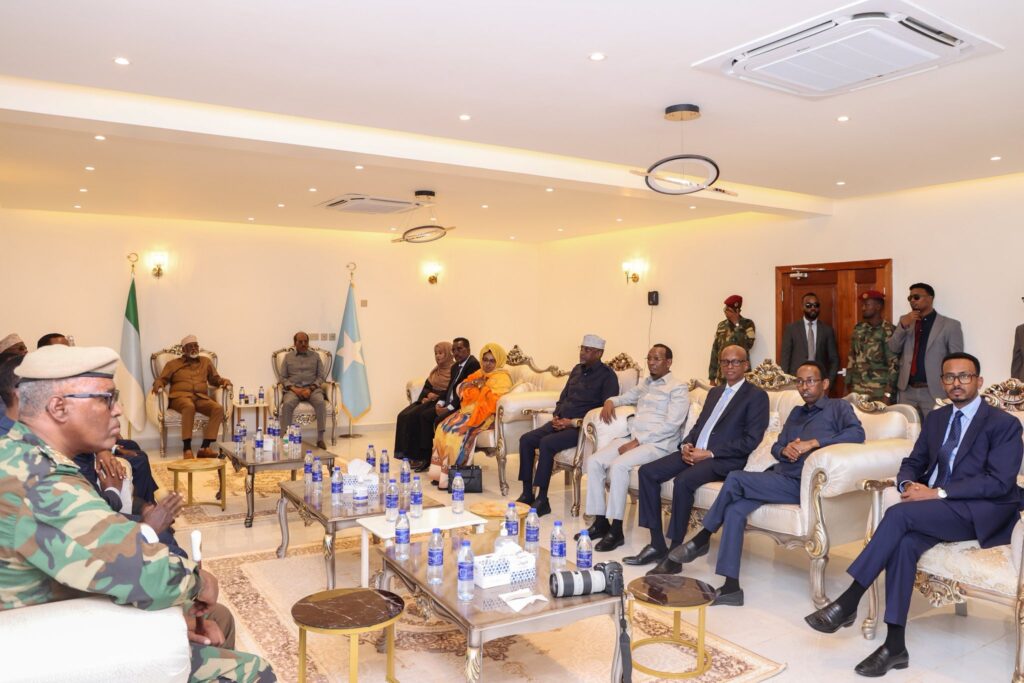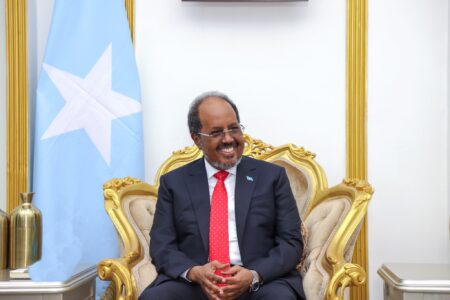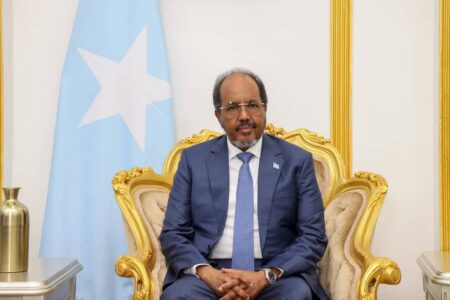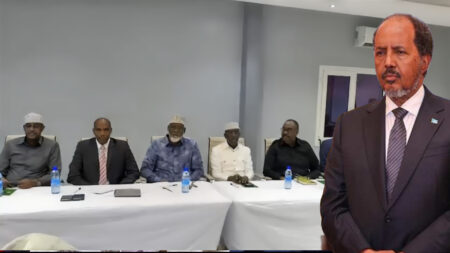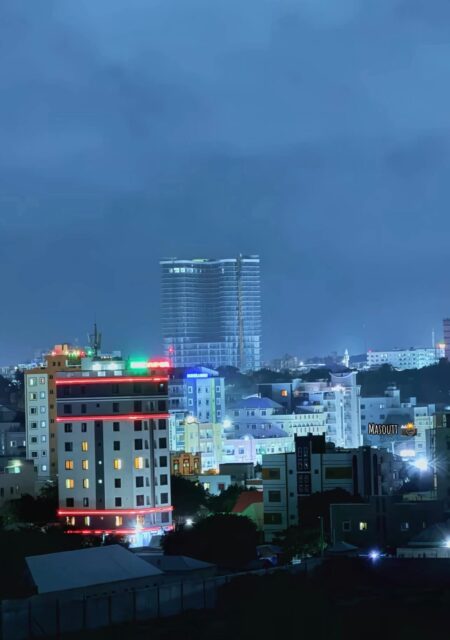(By Qaran24 Political Analysis Desk)
When President Hassan Sheikh Mohamud landed in Kismayo to meet Ahmed Madoobe, the country’s attention shifted southward. The trip was framed as a gesture of unity — an olive branch from Mogadishu to KISMANYO . But behind the warm greetings and public statements lay a much deeper game. The meeting was never about peace alone; it was about proving who truly holds the reins of Somali politics.
Everyone familiar with Somalia’s political theater knows Ahmed Madoobe’s reputation. He’s not a mystery man; he’s an open secret. For years, his power in Kismayo has rested on the shoulders of foreign interests more than on the will of the local people. President Hassan Sheikh knew this before he boarded the plane. His visit wasn’t naïve diplomacy — it was a test.
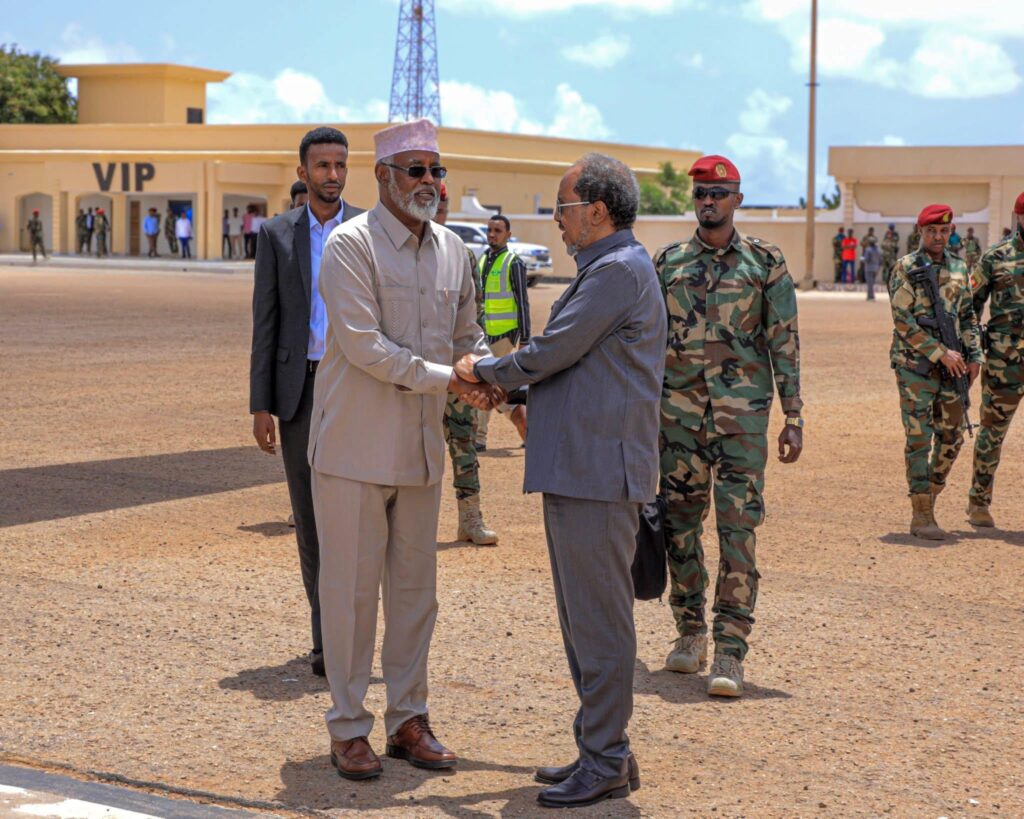
Hassan Sheikh’s message was subtle but sharp: Somalia is ready to talk, but not to beg. He wanted to show the world, and especially Somalia’s allies, that his government still believes in federalism — but federalism built on loyalty to the nation, not on deals struck in foreign capitals. In a way, he achieved exactly what he came for.
After the meeting, the political landscape became clearer. The president’s theory was confirmed — that many regional figures operate under outside influence and lack the power to make independent decisions. With that understanding, Mogadishu now has the moral license to act.
What Comes Next: Three Possible Paths
1. Mogadishu Consolidates Power
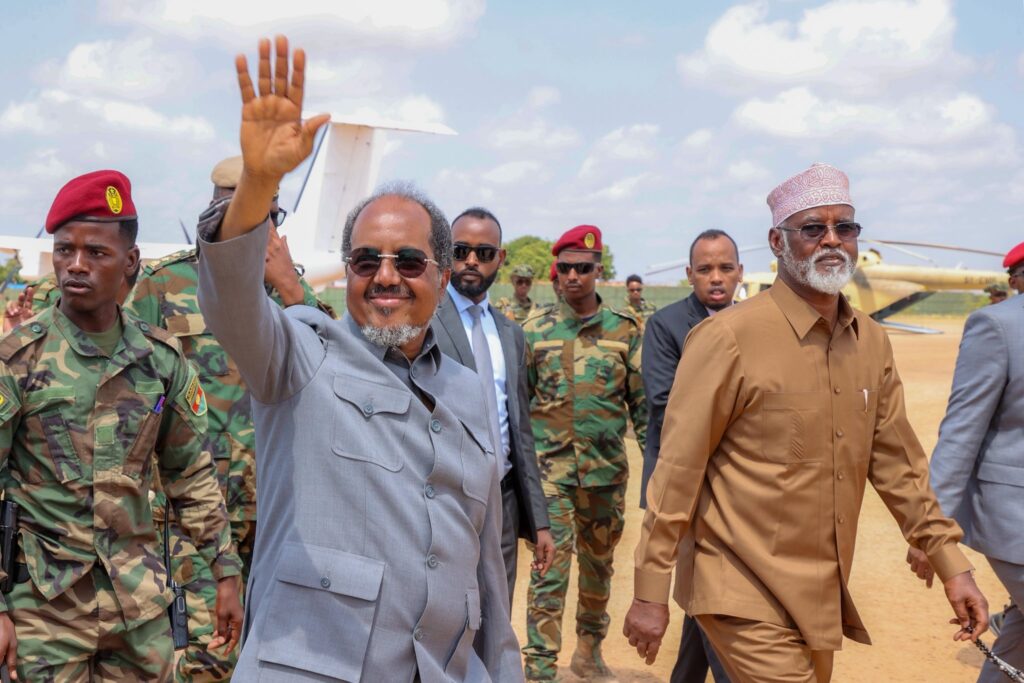
The first and most likely scenario is that Mogadishu begins tightening its hold over southern Somalia. With the Somali National Army advancing and local clans cooperating, a new structure could emerge — one that shifts the center of Jubaland’s authority from Kismayo to Buale.
This “New Jubaland” would represent local voices from Gedo, Middle Juba, and Lower Juba, instead of serving as a foreign enclave. For Ahmed Madoobe, that would mean facing pressure from two directions: the national army moving from Mogadishu, and an emerging local administration growing in Buale.
2. The Proxy Stalemate
The second scenario is darker. Foreign backers could double down on Madoobe, turning Jubaland into a zone of controlled tension. In this case, Gedo might see renewed clashes, and Al-Shabaab — always the opportunist — would exploit the chaos to entrench itself in Middle Juba.
It would be a political stalemate dressed as stability — one that benefits outsiders more than Somalis.
3. Clan Realignment and the Fall of Kismayo’s Grip
Somalia’s politics always return to clan realities, and Kismayo is no exception.
The Ogaden (especially the Cawlyahan), Marihan, and sections of Hawiye in the Jubas are gradually shifting their loyalty toward a nationally integrated system. Their logic is simple: clan survival is safer under a functioning Somali state than under a foreign client.
Once clan legitimacy breaks, no militia, no budget, no foreign support can keep a leader in power. The odds of survival drop fast — often below twenty percent. History has proven this again and again.
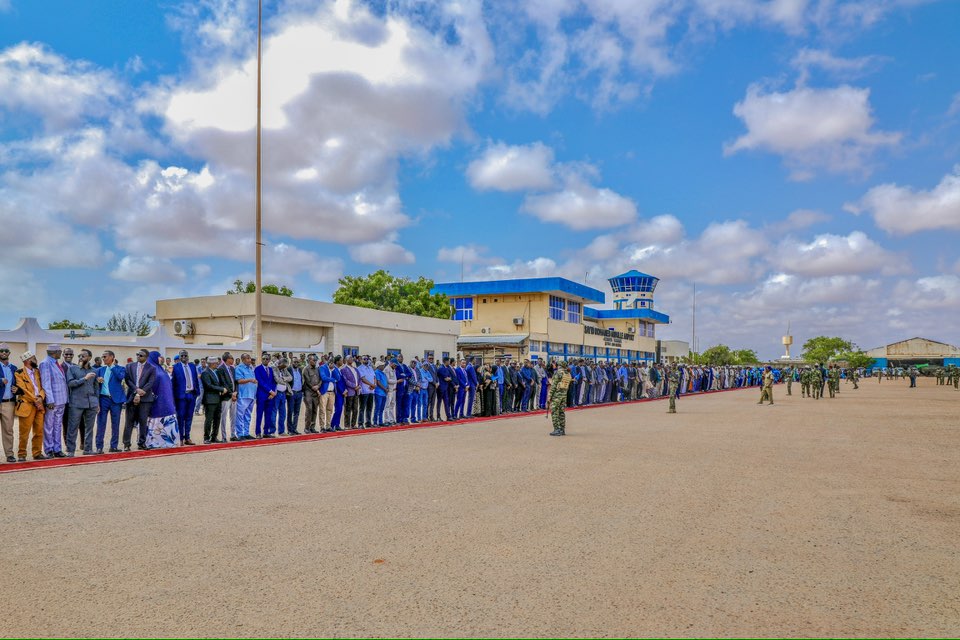
The Broader Meaning
The Kismayo visit wasn’t just about one handshake. It was a public experiment — a test of Somalia’s political maturity. President Hassan Sheikh came out of it not weaker, but more certain. He now knows where loyalty ends and dependency begins.
His government can now argue, with evidence, that it has extended an olive branch — and that any resistance to cooperation is rooted in external control, not domestic disagreement.
Recovering from Kismayo is a two-way path:
- First, clear Al-Shabaab from the southern belt through joint clan–military coordination.
- Second, build a real administration in Buale that reflects the will of local communities, not the politics of foreign advisors.
The Bottom Line
Ahmed Madoobe’s political career is walking a narrow bridge. The same forces that once propped him up are now questioning his usefulness. Meanwhile, Mogadishu is playing the long game — patient, strategic, and backed by shifting clan dynamics.
The Kismayo meeting was not a failure for Hassan Sheikh; it was a quiet victory. He walked in to extend his hand — and walked out with proof that Somalia’s sovereignty can only be defended from within, not through imported loyalties.
The coming months will tell whether this moment marks the start of a new federal order or the slow fading of a political relic. But one thing is certain — the tide has turned, and this time, Mogadishu holds the current.
